
With the help of science, we’ve come to understand our impact on the planet that is our home. With each item we produce, building we construct, forest we cut down, acre we plow, and journey we make — enabled by resources we derive from our planet’s prehistoric past — we do small amounts of harm to the fragile balance of nature that sustains life. As we’ve replicated our capabilities and developed our ability to scale, those tiny harms have multiplied to the point that the cumulative damage now threatens our planetary life-support system.
Efforts to address this situation have so far consisted of denial, modest efficiency improvements, recycling, and, in some cases, the substitution of products less harmful than their predecessors. But these well-intentioned actions are not nearly enough to stop, let alone reverse, the effects of global climate change. What we need is a way to rewind the ecological tape — a regenerative approach — and the leadership to make it happen.
Imagine an economy based on this principle of regeneration, an economy that uses our highly productive capabilities to not just reduce but actually undo environmental harm, all while continuing to provide the products and services on which we’ve come to depend. And what if making some relatively simple changes to how we use existing tools — along with employing important new ones, and at little to no additional cost — were to enable this shift?
This story is from the Autumn 2020 edition of strategy+business.
Start your 7-day Magzter GOLD free trial to access thousands of curated premium stories, and 9,000+ magazines and newspapers.
Already a subscriber ? Sign In
This story is from the Autumn 2020 edition of strategy+business.
Start your 7-day Magzter GOLD free trial to access thousands of curated premium stories, and 9,000+ magazines and newspapers.
Already a subscriber? Sign In

Transforming information into insight
Focus on six organizational elements to build a world-class data and insights capability.

THE URGENT NEED FOR SOPHISTICATED LEADERSHIP
The pandemic has highlighted a series of paradoxes inherent to the work of leaders. What comes next will depend on how well leaders face up to them.
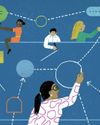
The road to successful change is lined with trade-offs
Rather than trying to convince people your change initiative is the right one, invite them to talk openly about what it might take to implement it: the good, the bad, and the frustrating.
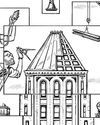
Sustaining productivity virtually
Maintaining productivity levels among remote employees is an enduring challenge. Here are five ways to help businesses and employees thrive while people work at home.
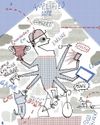
FORWARD TO normal
Entertainment and media companies are building business models that are resilient to the enduring changes in consumer behavior ushered in by COVID-19.

How leaders can promote racial justice in the workplace
Embrace four principles to turn today’s diversity, equity, and inclusion initiatives into sustained progress.

CREATING THE OFFICE OF THE FUTURE
In a remodeled world, it is vital for companies to reinvent ways of working.
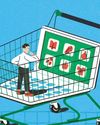
Consumer companies must take leaps, not steps
As shoppers show how quickly they can adapt to external shocks, retailers will need to radically reconfigure their business models.

Businesses can fast-track innovation to help during a crisis
“Unrealistic” timelines can actually work. Here’s how.
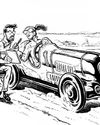
Agility and experience management work better together
Many companies achieve early wins with separate transformational efforts, then stall. But if combined and enhanced using “return on experience,” or ROX, measures, these two programs can unlock each other’s potential.